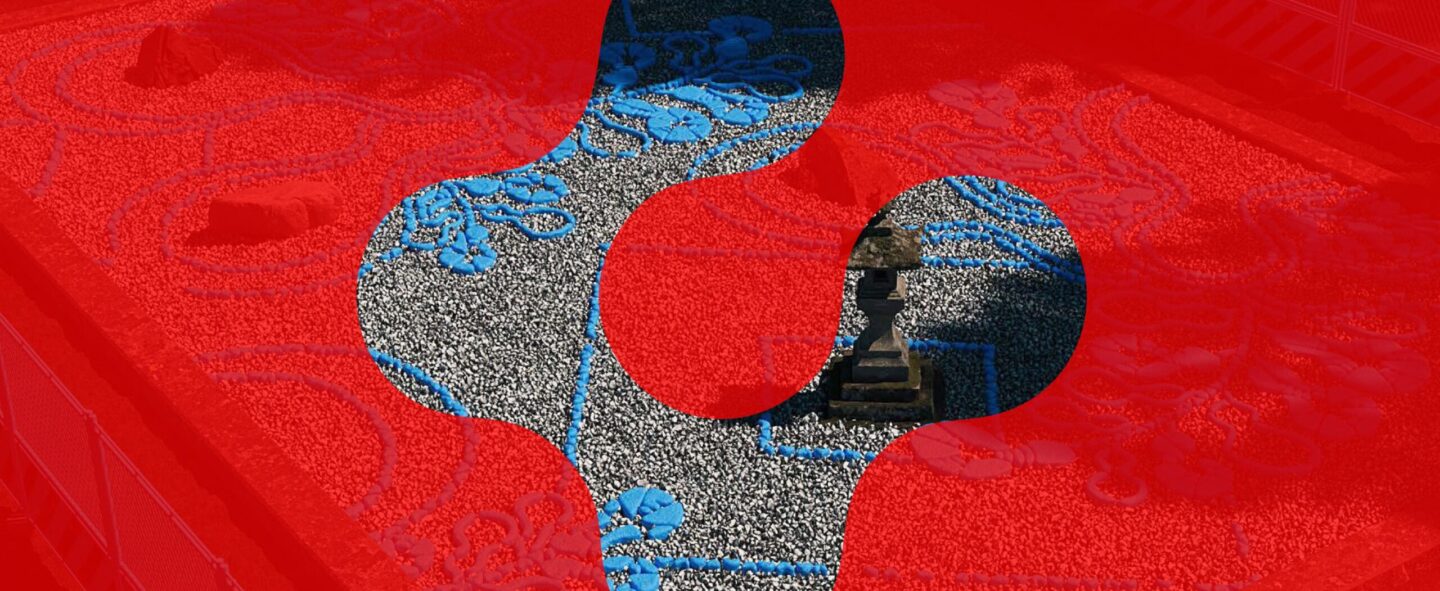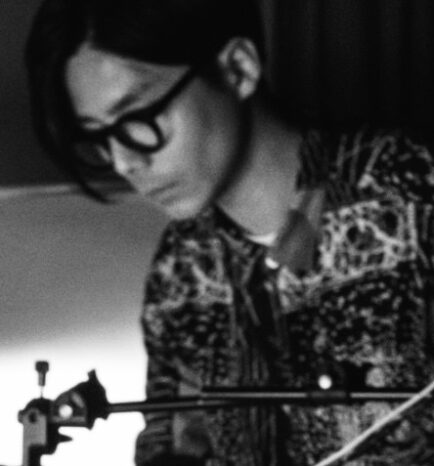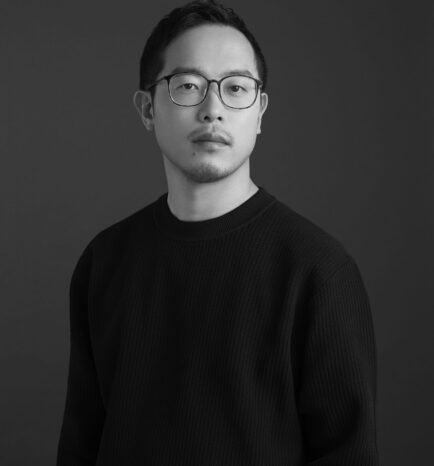
Fiammetta Pennisi
Bio
Sophie Grossmann studied Cultural Publishing at the Zurich University of the Arts (ZHdK) and holds a second-graduate degree in Art History, with a focus on the History of Textile Arts, from the University of Bern. Sophie joined the Museum für Gestaltung in Zurich in 2021. Initially part of the Decorative Arts Collection, she has been a research associate since 2022, specializing in the challenges of collecting intangible cultural assets such as digital-born and hybrid objects, as well as digital documentation. In this role, she has led several case studies and collaborated with designers, artists, and institutions to commission exhibits and curate spaces dedicated to digital collecting. Sophie has presented her work on digital collecting at various institutions, including the Istituto Svizzero in Rome, the University of Bern, and others.
Bio
Born in 1991 in Osaka, Japan.
Graduated from the Department of Design, Visual Design Major at Kyoto City University of Arts.
After working as a graphic designer at an advertising production company, he began working as a director and designer specializing in 3DCG.
Currently based at the visual design studio WOW inc., creating works ranging from films to installations.
Also active as a member of the creative collective “Tsuribu Tokyo.”
Since 2022, he has served as a part-time lecturer in the Department of Imaging Arts at Musashino Art University.
His work explores the boundaries of reality through a fusion of live-action footage, CG, and drawing.
Bio
Media artist, born in 1987, started working as an artist around 2010. His work is based on the motifs of materialization, transformation, and the longing for physicality in the Digital Nature. Associate Professor at Tsukuba University and he has served as a producer of the theme project for Japan EXPO 2025 in Osaka and Kansai. His works include the photography collection Sehnsucht nach Masse (amana, 2019) and the NFT work Re-Digitalization of Waves (foundation, 2021). 2016 PrixArsElectronica Honor Award, STARTSPrize from the EU, 2019 SXSW Winner of the creativeExperienceARROWAwards, Apollo Magazine 40 UNDER 40 ART andTECH, Asia Digital Art Award for Excellence, and many works recommended by the Jury Committee of the Japan MediaArts Festival Art Division
Bio
Designer, Creative Director, and Project Associate Professor at the Research Center for Advanced Science and Technology (RCAST), the University of Tokyo. Born in Japan in 1985, Yoshimoto earned an MS degree in Aeronautics and Astronautics from the University of Tokyo in 2010 and concluded his doctoral studies in Design Engineering at the Royal College of Art in 2016, concurrently founding the acclaimed design studio Tangent in London. In 2020, he co-founded the Advanced Art Design Lab at RCAST, the University of Tokyo, thereby amplifying his presence across both London and Tokyo. Yoshimoto specializes in the harmonious integration of design and engineering, crafting an array of innovative designs and concepts for globally renowned luxury brands. His expertise spans a diverse spectrum, from technology-driven business ventures to urban development projects. In recent years, he established the international initiative Craft x Tech, bridging traditional Japanese craftsmanship with cutting-edge technology, and has actively pursued collaborations to contribute to the evolution and preservation of Japanese cultural heritage. Major artworks include the installation “Beyond the Horizon” (2024) for Lexus unveiled at Milan Design Week 2024, the monumental wall art installation “Orb” (2023) for the Tanegashima Space Art Festival, the installation “Here” (2019) crafted for the Hermès pavilion at the Salon International de la Haute Horlogerie (SIHH), the glass sculpture “Rise” (2017) designed for Wonderglass, the animation “Ascension” (2016) for the façade of the iconic Burj Khalifa in Dubai, and the lighting design “Inaho” (2013) inspired by the rhythmic sway of paddy fields. Yoshimoto has received numerous awards in both the fields of design and engineering, including the JSAI (Japanese Society for Artificial Intelligence) Annual Conference Award, Lexus Design Award, and the Red Dot Design Concept Best of the Best.
Japan has a deep and celebrated history of craftsmanship, from intricate woodwork and textiles to the art of katagami stencil-making. However, these traditional crafts face a dual crisis: an aging population of craftspeople and a declining interest among younger generations. As a result, many artisanal techniques risk fading into obscurity.
In response to this challenge, initiatives such as Craft x Tech have emerged. These initiatives aim to leverage the latest technological advancements to not only preserve these crafts but also reimagine them for the modern era. By integrating traditional practices with contemporary design and technology, Craft x Tech demonstrates how innovation can breathe new life into tradition while engaging future generations.
At the forefront of this movement is Yoichi Ochiai, a renowned media artist, academic, and director of the Digital Nature Laboratory at the University of Tsukuba. Ochiai’s groundbreaking work focuses on the intersection of art, science, and technology, reinterpreting nature and tradition through a digital lens.
Through his artworks, Ochiai has redefined the possibilities of craftsmanship by blending traditional materials and methods with futuristic approaches such as 3D printing, computational design, and augmented reality. His projects often reflect a deep respect for cultural heritage while pushing the boundaries of innovation.
During the event, Ochiai will share insights into his creative process and present some of his seminal works that explore the fusion of traditional crafts with advanced technologies. His perspective will provide valuable commentary on how art and science can collaborate to reinterpret and sustain heritage crafts.
A focal point of the event will be the reinterpretation of historical katagami—traditional Japanese paper stencils used for dyeing textiles—drawn from the collection of the Museum für Gestaltung Zürich. These stencils represent an enduring link between Japan and Switzerland, showcasing the rich cultural exchange between the two nations.
Japanese video artist Takafumi Matsunaga has transformed these historical artifacts into a stunning CGI-generated short film titled Mirage. This film bridges the gap between past and future by reimagining katagami motifs through the lens of digital storytelling. The intricate patterns of the stencils come to life in a mesmerizing visual narrative, illustrating how traditional crafts can inspire contemporary art and design.
Ochiai will provide expert commentary on Matsunaga’s work, offering insights into how historical artifacts like katagami can inform and inspire innovation in the digital age.




Fiammetta Pennisi




